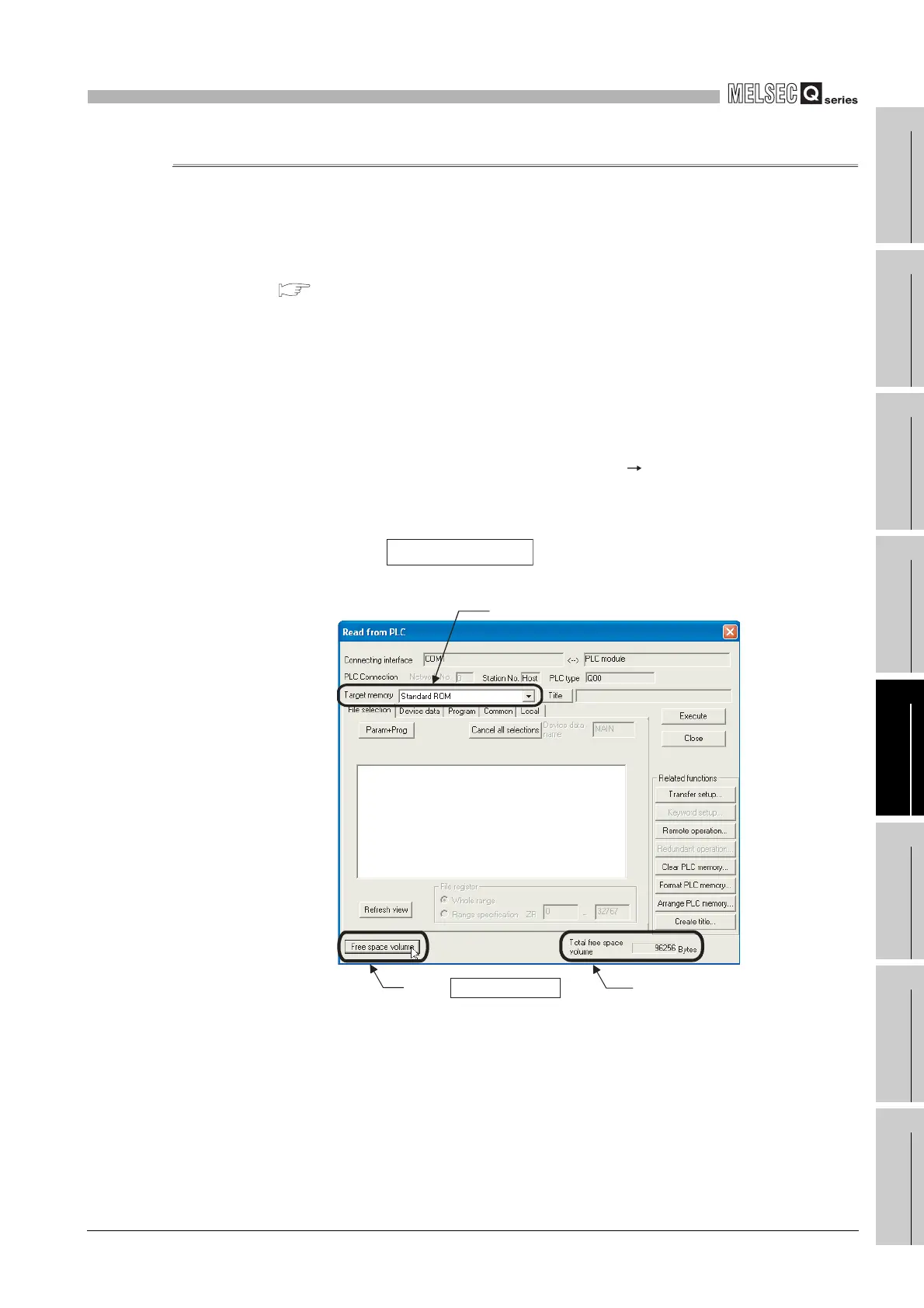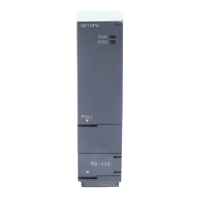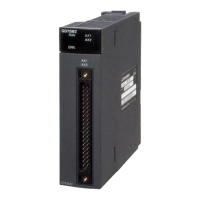5
MEMORIES AND FILES HANDLED BY CPU MODULE
5.1 Basic Model QCPU
5.1.3 Standard ROM
5
- 7
1
Overview
2
Performance
Specification
3
Sequence Program
Configuration and
Execution Conditions
4
I/O Nunber Assignment
5
Memories and Files
Handled by CPU Module
6
Functions
7
Communication with
Intelligent Function
Module
8
Parameters
5.1.3 Standard ROM
(1) Definition of standard ROM
The standard ROM is used to execute boot run by the Basic model QCPU.
The standard ROM is used to save programs and parameters without battery backup.
The program stored in the standard ROM is booted (read) to the program memory
( Section 5.1.2) to perform operation.
(2) Storable data
The standard ROM can store parameters, intelligent function module parameters,
programs, device comments and device initial value data.
Refer to Section 5.1.1(2) for the list of data that can be stored into each memory.
(3) Checking the memory capacity
To check the memory capacity, choose [Online] [Read from PLC] on GX
Developer.
1) Select "Standard ROM" as the target memory on the Read from PLC screen.
2) Click the button.
3) The memory capacity appears in the Total free space volume field.
Diagram 5.5 Memory capacity checking procedure
Free space volume
1) Select target memory.
2) Click Free space volume button.
3) Memory capacity is displayed.

